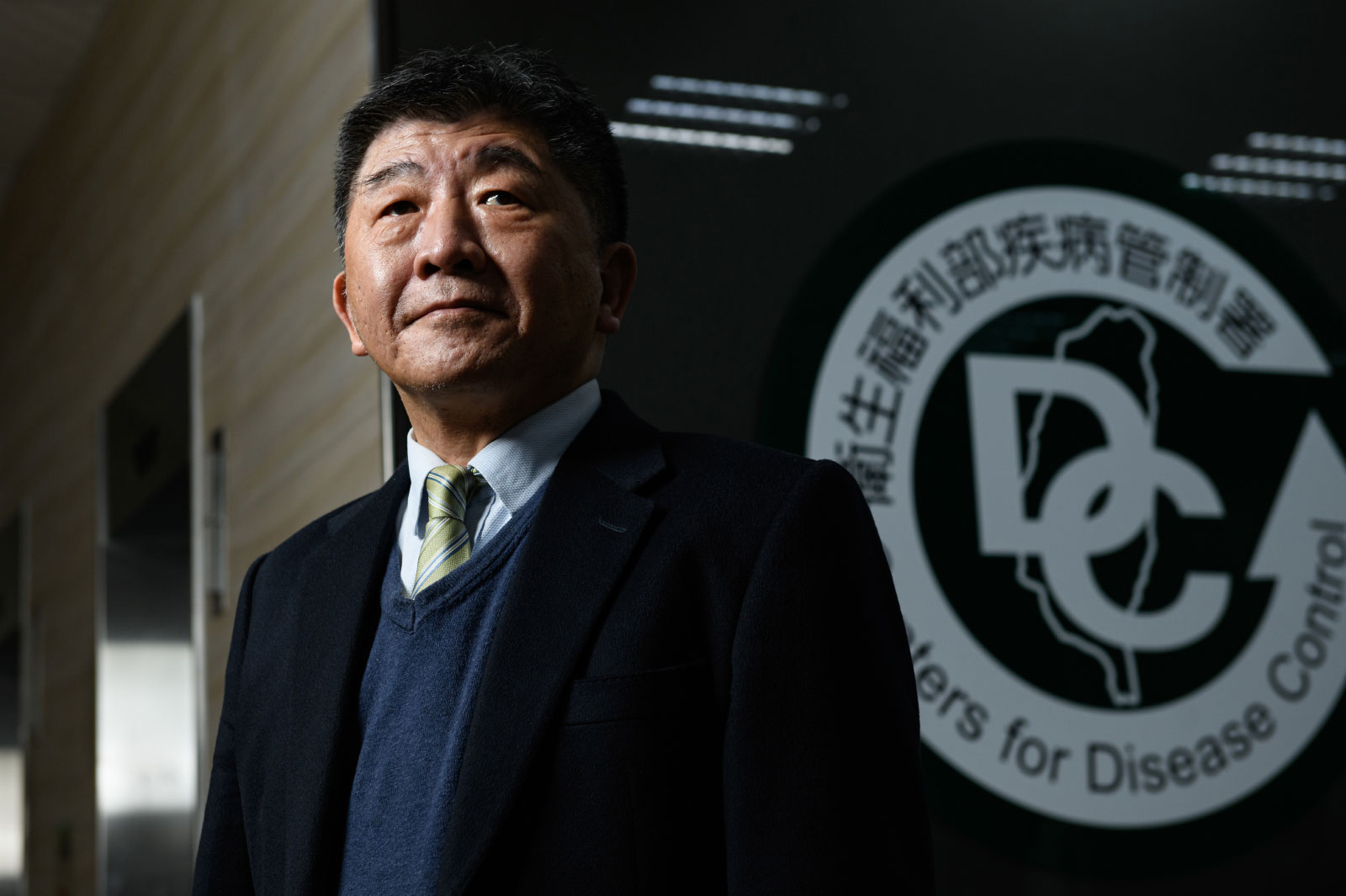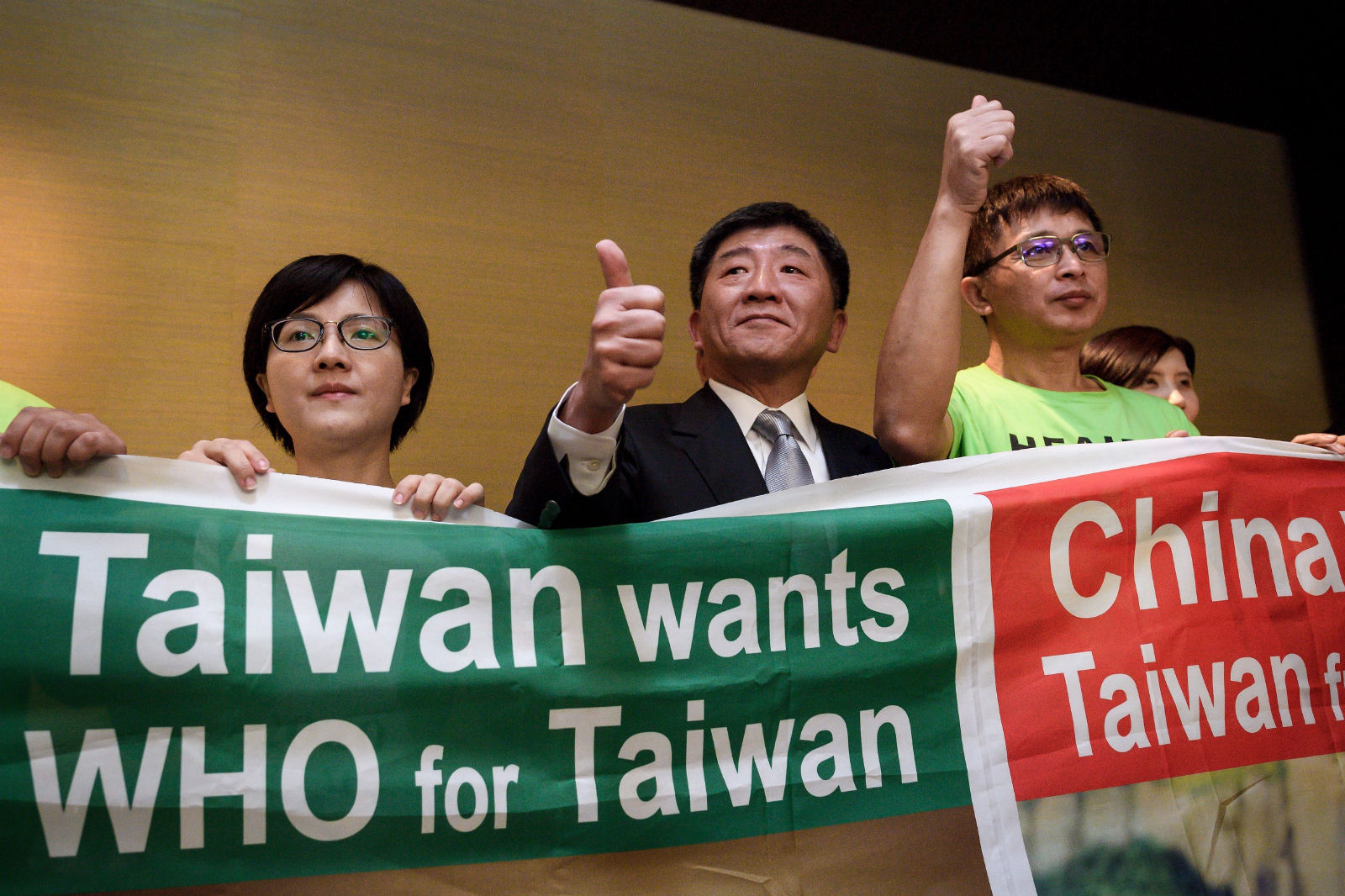Chen Shih-chung: Understanding trumps confrontation

Source:Pei-Yin Hsieh
Early in Taiwan’s battle against COVID-19, Health Minister Chen Shih-chung was viewed as a hero. Some of that luster has since worn off, but he has remained calm and in control because of many lessons learned from past experiences.
Views
Chen Shih-chung: Understanding trumps confrontation
By Sydney PengCommonWealth Magazine
Chen Shih-chung
Born: 1952
Current position: Health and welfare minister, head of the Central Epidemic Command Center
Past positions: Presidential Office senior adviser, deputy health and welfare minister, Taiwan Dental Association president
Chen Shih-chung (陳時中) has one of the highest pressure jobs in Taiwan. As the country’s health minister and head of the Central Epidemic Command Center, he has led Taiwan’s campaign to keep COVID-19 at bay since the beginning of January 2020 with barely a day off.
During the past two years, he has presided over most of the CECC’s daily briefings, broadcast live to audiences of more than 100,000 people. The vicissitudes of the pandemic have turned this once widely hailed anti-pandemic hero into a scarred battlefield veteran, but in a recent TVBS survey, he still ranked among Taiwan’s most popular political figures.
When CommonWealth magazine interviewed Chen in on Jan. 6, the Omicron variant of COVID-19 had just entered Taiwan and a cluster of infections in Taoyuan was expanding.
Chen is no stranger to controversy, having pushed for reforms related to how the national health insurance system reimburses dentists and the transparency of medical records. When under pressure, he has learned to embrace the art of changing course and making concessions.
“Fighting an epidemic is the same. To persuade people, you have to be considerate of their needs,” he said.
One example of that came in May 2021 when the outbreak was at its worst in Taiwan but had yet to reach the country’s offshore counties.
The government of Kinmen County, which lies just kilometers off China’s southeastern coast, announced without the CECC’s prior approval that travelers flying in from Taiwan had to present on arrival a negative COVID-19 PCR test from the previous three days or get a rapid antigen test on the spot.
It was a measure similar to that required by Taiwan for travelers coming in from overseas, imposed to keep COVID-19 out, but Chen’s CECC revoked it, saying it violated communicable disease laws.
Chen called Kinmen County Commissioner Yang Cheng-wu (楊鎮浯) to try to get him not to take such a hard line. Two days later, after Kinmen continued to insist that measures were needed to keep visitors with COVID-19 out, Chen compromise and allow Taiwan’s offshore counties – Kinmen, Penghu, and Lienchiang (Matsu Islands) – to set up stations at their airports offering COVID-19 screening tests on a voluntary basis.
Chen’s growing resilience amid setbacks was also evident in his admission of flaws in the CECC’s COVID-19 vaccine purchase policy.
In September 2021, Chen acknowledged at the Legislative Yuan that when Taiwan first purchased just under 30 million vaccine doses, he thought a buyer’s market would quickly emerge. “I admit that was a mistake. The market for vaccines still remains a seller’s market.”
Another example was when Taiwan first went to buy the AstraZeneca COVID-19 vaccine. At that point in time in the mid-third of 2020, the vaccine’s Phase 2 trial had yet to conclude, according to Chen, and Taiwan had had 100 days without any cases, resulting in the CECC ordering only a small number of doses.
“In retrospect, it seems like an easy decision [to buy more], but at the time, the situation was not clear,” Chen said.
Promoting medical reform for three decades
Chen’s previous experience prepared him for dealing with difficult issues. In 1995, when he became the president of the Taiwan Dental Association, he traveled around Taiwan to promote a global budget system for national health insurance reimbursements to dentists.
For a full year, Chen would work at his dental practice during the day and then attend an association meeting every Thursday night that would last from 10 p.m. to 4 in the morning.
Chen and other association officials would also travel around the island by tour bus (Taiwan’s bullet train was still years away) to meet with local dentist associations. There were times when they would hold events in Yilan, Miaoli, Chiayi, and Tainan on the same day. When one event ended, they would get back on the bus and review and discuss the minutes of the meeting before getting some shut-eye ahead of the next stop.
After the many long hours and endless meetings, global budgeting was put in place, but as Chen looks back at it now, he describes it only as a “mixed success.”
It was also a time when “underground dentists” posed a serious challenge, in some cases entering licensed dental clinics and creating a ruckus in protest. Huang Jin-shun (黃金舜), president of the Federation of Taiwan Pharmacists Associations, has known Chen for more than 20 years and recalls that Chen received threats over the issue, including to his life.
So-called “underground dentists” were unlicensed dentists who might be dental mold technicians providing dental care or prosthodontists who only filled cavities. For a long time, Taiwan lacked accredited dentists, and these “underground” practitioners were the main providers of dental care.
In the 1990s, the dental association said it would issue bronze medals to licensed dentists to display at their clinics so that consumers could easily identify the dentists with legitimate credentials. A system of reporting the unlicensed dentists was also instituted, putting in peril their livelihoods.
Tu Rui-yen (杜瑞煙), a former executive director of the Taiwan Dental Association and a dentist in Taipei, said some association officials were hacked at with knives or had poisonous snakes put in their way for reporting the unlicensed practitioners.
After Chen took over as head of the association, he changed the strict reporting policy and negotiated a change to the approach with “underground dentists” that put the emphasis on capping their total numbers. The compromise reached was that if they were self-disciplined and their numbers remained under control, they would not be reported.
Chen’s calculating pragmatism and ability to compromise on both the global budgeting and underground dentist issues helped him gain popularity and move onto a bigger stage.
Learning to adjust his mood through bridge
Chen’s ability to learn to make concessions and change course amid challenging situations came from the mental training he got playing bridge.
The rules of bridge call for four players divided into two teams. The two people facing each other are paired together. Teams have to bid on the number of tricks they think they can win and then play their cards according to the designated suit. Every facet of the game is a test of the teams’ chemistry and strategy.
 (Source: Getty Image)
(Source: Getty Image)
Huang, who has seen Chen play bridge, remembers him having an excellent memory and complete poise, rarely showing emotion. While most people might get flustered after losing a deal, “he always remained calm, so in the end, he always won.”
“What bridge players care about is whether your process is correct, rather than the end result,” Chen recalled. When he played bridge, his goal was to get as much as he could out of each hand under reasonable conditions.
The fight against COVID-19 continues, with the CECC continuing to target zero COVID-19 cases to minimize the number of illnesses and deaths, but will the strategy be a success or only the “mixed success” achieved on the global budgeting issue? For Chen, his is now facing a difficult battle in which success is the only acceptable outcome and failure is not allowed.
Translated by Luke Sabatier
Uploaded by Penny Chiang






